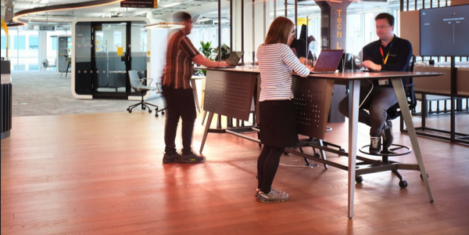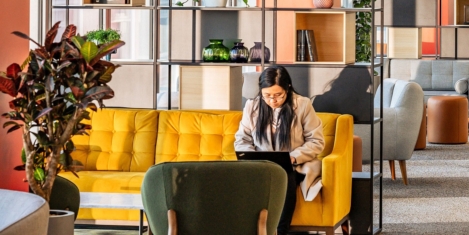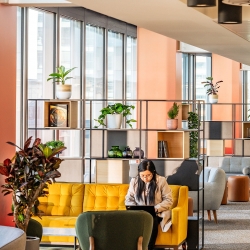April 26, 2022
Two thirds would take a pay cut in exchange for a four day week
![]() A poll of 2,000 people published in the new edition of the State of Hybrid Work study from Owl Labs claims that flexibility is now key to retaining top talent in 2022 and beyond. 65 percent of British employees would rather be paid less in exchange for a four day week and over a third (37 percent) would choose to decline a job if flexible hours are not offered. The report claims that offering greater flexibility will prove key to preventing employees from driving the ‘Great Resignation’ – with nearly one in three (31 percent) employees changing jobs in the past two years and a quarter (25 percent) of employees actively seeking a new opportunity in 2022. More →
A poll of 2,000 people published in the new edition of the State of Hybrid Work study from Owl Labs claims that flexibility is now key to retaining top talent in 2022 and beyond. 65 percent of British employees would rather be paid less in exchange for a four day week and over a third (37 percent) would choose to decline a job if flexible hours are not offered. The report claims that offering greater flexibility will prove key to preventing employees from driving the ‘Great Resignation’ – with nearly one in three (31 percent) employees changing jobs in the past two years and a quarter (25 percent) of employees actively seeking a new opportunity in 2022. More →





 Do organisations truly understand how their people work? A big question that needed some unpacking and was explored at a recent Workplace Evolutionaries event, led by Tim Allen and Mark Eltringham. This is raw audio from the event so includes a brief chat about dogs and some other stuff.
Do organisations truly understand how their people work? A big question that needed some unpacking and was explored at a recent Workplace Evolutionaries event, led by Tim Allen and Mark Eltringham. This is raw audio from the event so includes a brief chat about dogs and some other stuff. 
 There’s a scene in the 1986 horror movie The Fly in which Seth Brundle (Jeff Goldblum) persuades the reporter Veronica Quaife (Geena Davis) to try two steaks, one of which Brundle has just sent between two teleportation pods in an effort to work out why the pods can’t process organic matter, including the organic matter that had recently belonged to a very unfortunate baboon.
There’s a scene in the 1986 horror movie The Fly in which Seth Brundle (Jeff Goldblum) persuades the reporter Veronica Quaife (Geena Davis) to try two steaks, one of which Brundle has just sent between two teleportation pods in an effort to work out why the pods can’t process organic matter, including the organic matter that had recently belonged to a very unfortunate baboon. 


 Uncertain times call for different measures and approaches, the old rules and playbooks are no longer applicable – so what are you going to do? Sit around, stagnate, hanker after old solutions trying to manipulate and squeeze them into new, unknowable, untried paradigms? No! One thing human beings are fairly good at is evolving and adapting to new and unknown situations and as we all know, being flexible and accepting change creates resilience and ensures survival.
Uncertain times call for different measures and approaches, the old rules and playbooks are no longer applicable – so what are you going to do? Sit around, stagnate, hanker after old solutions trying to manipulate and squeeze them into new, unknowable, untried paradigms? No! One thing human beings are fairly good at is evolving and adapting to new and unknown situations and as we all know, being flexible and accepting change creates resilience and ensures survival. 
 Even as we begin to glimpse the light at the end of the tunnel of the pandemic, evidence suggests that many workers want to carry over the working flexibility that the pandemic afforded into the post-pandemic world and a new future of work. Namely, employees are wanting to adopt a ‘mixed’ working style – spending time both working in the workplace,
Even as we begin to glimpse the light at the end of the tunnel of the pandemic, evidence suggests that many workers want to carry over the working flexibility that the pandemic afforded into the post-pandemic world and a new future of work. Namely, employees are wanting to adopt a ‘mixed’ working style – spending time both working in the workplace, 



















May 11, 2022
The truth about motivation, engagement and the employment of motivated idiots
by Mark Eltringham • Comment, Facilities management, Workplace, Workplace design